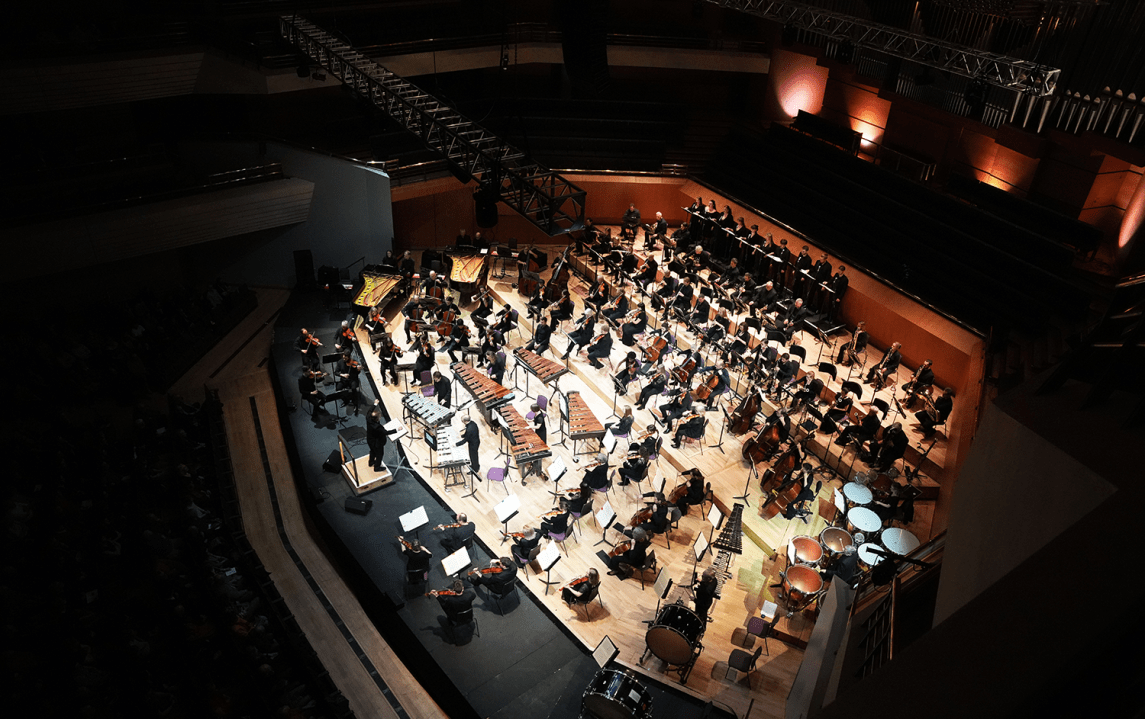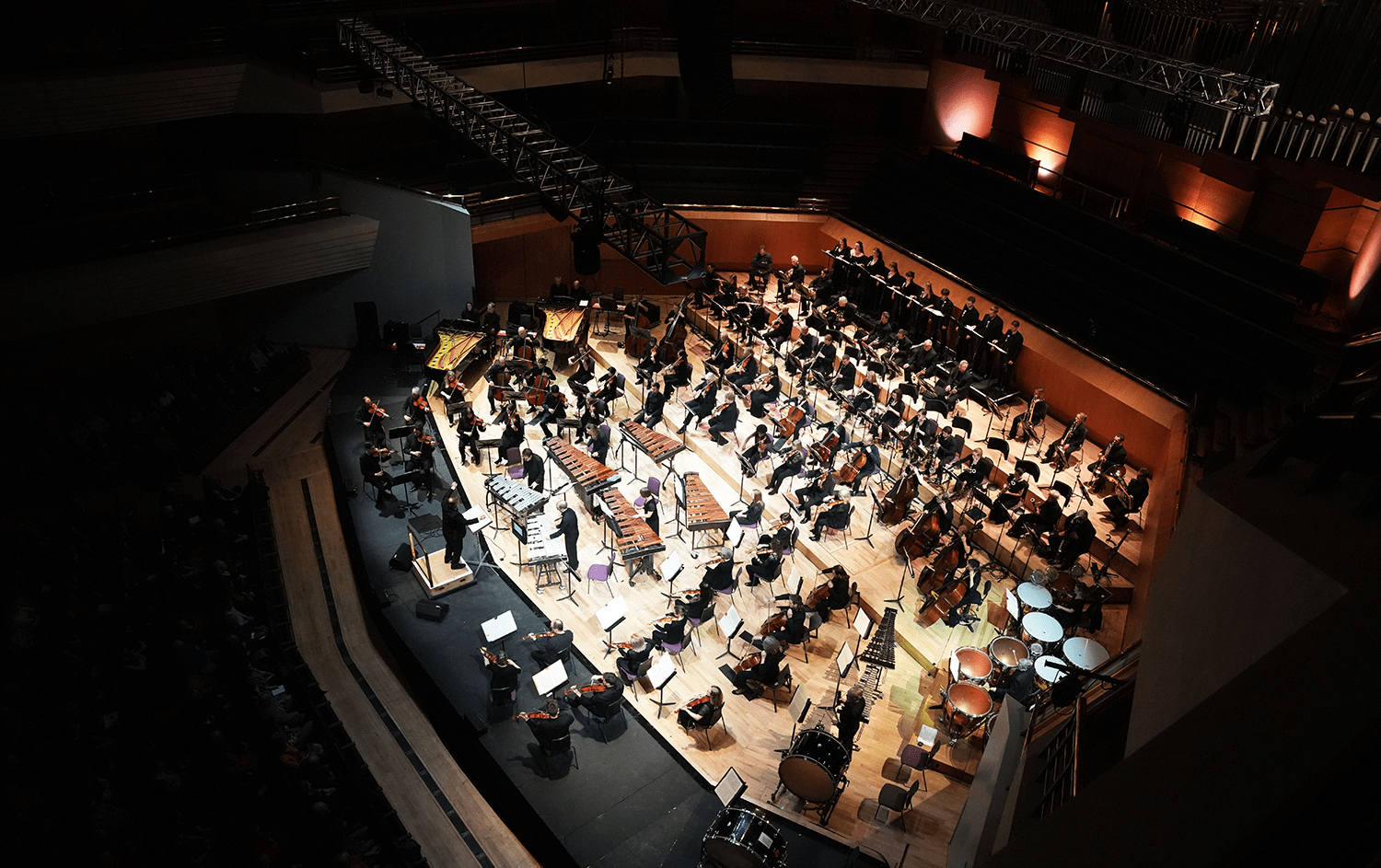Steve Reich describes his Music for Pieces of Wood (1973) as an attempt ‘to make music with the simplest possible instruments’. At the Bridgewater Hall five performers stood in a pool of light, each holding a pair of claves: plain sticks of wood. At first, unsurprisingly, it’s all about rhythm. Patterns weave and dissolve, building into a clattering digital tapestry of sound. You start to hear new timbres – even harmonies – and the mind locks on, allowing Reich to play tricks on the ear. Players drop out unnoticed, then re-enter in a flash of colour before you realise they’ve gone. By the end, you’re so thoroughly inside the music that even the final abrupt silence feels like high theatre. The Manchester audience gave an astonished gasp. Then they laughed – and then they applauded at full force.
How stupid I feel for taking this long to recognise a masterpiece
Who’d have thought that something so basic would be such a hard act to follow? This was the opening item in a three-day Reich festival presented by the Hallé Orchestra under the direction of percussionist extraordinaire Colin Currie.

Get Britain's best politics newsletters
Register to get The Spectator's insight and opinion straight to your inbox. You can then read two free articles each week.
Already a subscriber? Log in







Comments
Join the debate for just £1 a month
Be part of the conversation with other Spectator readers by getting your first three months for £3.
UNLOCK ACCESS Just £1 a monthAlready a subscriber? Log in